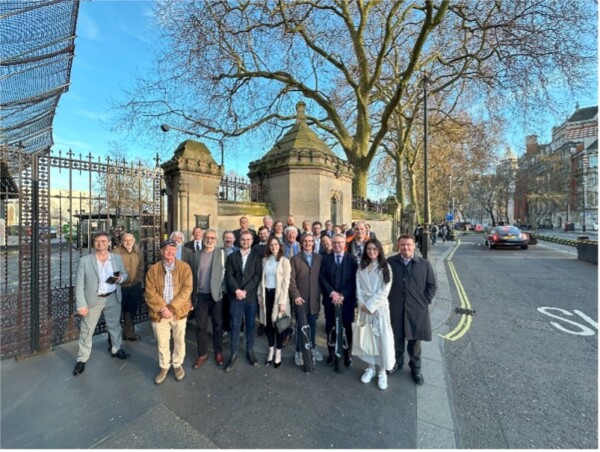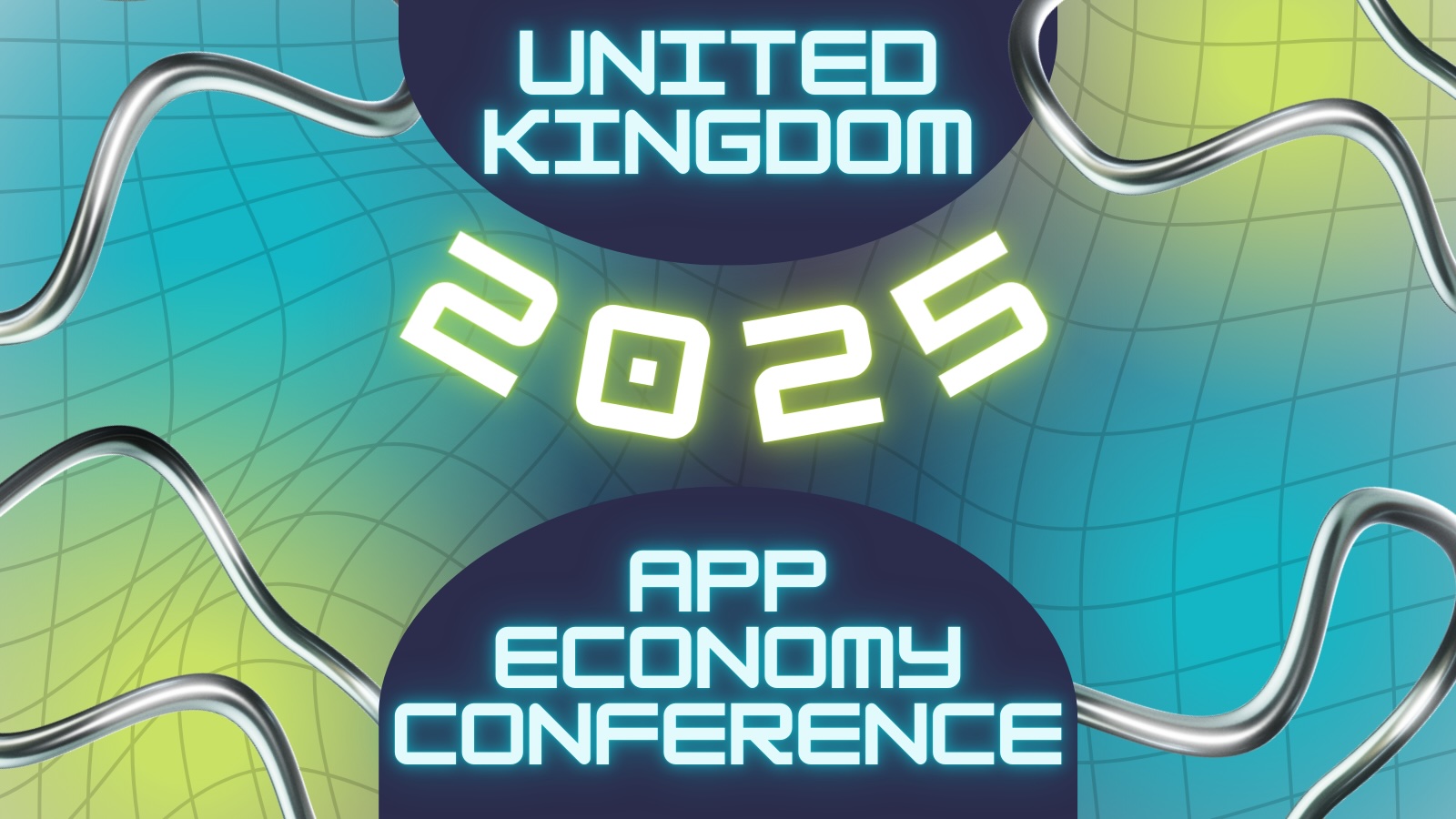Following the success of our member-led advocacy in Brussels, ACT | The App Association did it all over again in London for our first-ever Global App Economy Conference: United Kingdom. From 30 March to 2 April, we convened our small business members and policymakers at a critical moment for the future of UK tech policy.
As digital regulation continues to evolve across the European Union and the United States, the UK has a unique opportunity to position itself as a leader in tech governance that supports small and medium-sized enterprises (SMEs). Through briefings, meetings, and direct engagement, GAEC: UK provided a platform for SMEs to share their on-the-ground perspectives with the people shaping global digital policy.
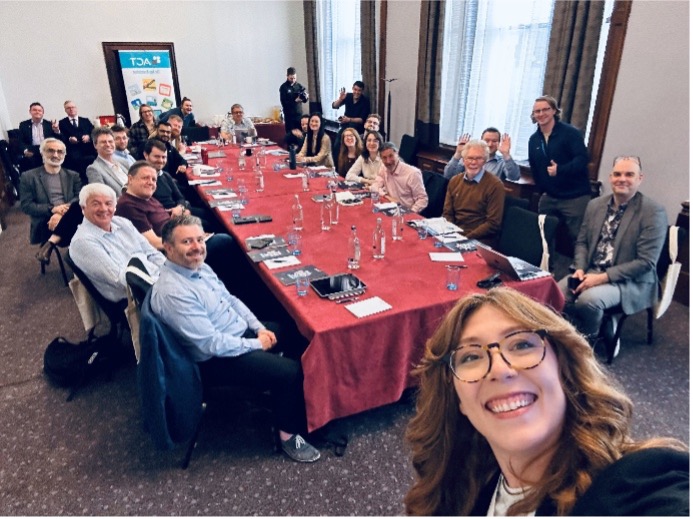
Day one: A warm welcome and a strong signal
GAEC: UK opened with what’s become a core tenet of our model: connection. Before heading into substantive deep-dives and policymaker meetings, our SME members gathered for a welcome dinner, where new connections were forged, long-time collaborators met in person, and the stage was set for the week ahead.
Day two: From insights to impact
We kicked off the week with a day of deep policy discussions designed to prepare our members for the meetings ahead. Our SME members shared how current proposals on issues from the Digital Markets, Competition and Consumers Act (DMCCA) and AI governance to standard-essential patent (SEP) licensing and cybersecurity impact their ability to build, operate, and scale their businesses. Their concerns emphasised the need for proportionate, SME-focused approaches to emerging regulation.
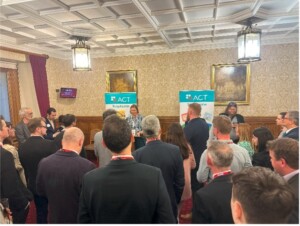
That evening, members were welcomed to a Parliamentary Reception hosted by Lord Clement-Jones in the House of Lords. Lord Clement-Jones, a crucial voice in the UK’s AI and digital policy landscape, addressed our group and reinforced the importance of including SMEs in legislative conversations. We also heard valuable insights from Victoria Collins MP, the Liberal Democrat Spokesperson for Science, Innovation, and Technology, Alan Mak, the Shadow Minister for Science, Innovation, and Technology, and our very own Chelsea Thomas. The reception offered a valuable opportunity to continue the day’s dialogue in a historic setting.
Days three and four: Advocacy in ACTion
With insights in hand, our members headed into two days of high-level meetings with Members of Parliament and Lords, as well as officials from the Department for Science, Innovation and Technology (DSIT), the Competition and Markets Authority (CMA), the Department for Business and Trade (DBT), and Treasury. Topics included AI transparency, SEP licensing reform, the risks of burdensome M&A oversight, and the importance of maintaining encryption and user trust in digital regulation.
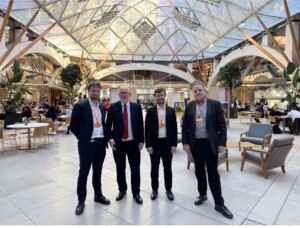 Across more than 20 meetings, our members provided concrete examples of how well-intentioned policy can create unintended consequences for small developers. Their input helped shift the conversation toward regulatory clarity, proportionality, and meaningful support for startups. But these aren’t just policy concerns, they’re investment signals. When the regulatory landscape lacks predictability or, worse, is contradictory, it introduces risk and uncertainty for investors. If the UK wants to lead in AI and global tech innovation while growing its app economy, it must position itself as a stable, scalable destination for capital.
Across more than 20 meetings, our members provided concrete examples of how well-intentioned policy can create unintended consequences for small developers. Their input helped shift the conversation toward regulatory clarity, proportionality, and meaningful support for startups. But these aren’t just policy concerns, they’re investment signals. When the regulatory landscape lacks predictability or, worse, is contradictory, it introduces risk and uncertainty for investors. If the UK wants to lead in AI and global tech innovation while growing its app economy, it must position itself as a stable, scalable destination for capital.
Momentum worth building on
Our inaugural Global App Economy Conference in the United Kingdom demonstrated that the UK has both the tools and the timing to lead in global tech policy, if it keeps small businesses at the centre of the conversation.
Thank you to all our members who participated and to the policymakers who engaged thoughtfully throughout the week. With the United Kingdom at a pivotal point, we look forward to continuing this work and ensuring SME voices remain part of the policymaking process!
Watch some of our GAEC: UK highlights here.
Next stop: Washington, D.C.
